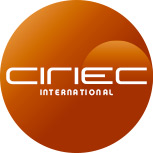
About CIRIEC
(International Center of Research and Information on the Public, Social and Cooperative Economy) is an international non-governmental scientific organization.
Objectives
It aims at fomenting and securing information gathering, scientific research and the broadcast of works in relation to sectors and activities oriented towards services of general and collective interest: State action and regional and local public authorities regarding economic matters (economic policy, regulation); public services; the social economy of entities such as cooperatives, labor societies, mutual funds, special employment centers, nonprofit associations, etc. It also seeks to promote the European and Latin American organization of university researchers in the Social Economy sector, boost work teams and establish solid links between Universities and Social Economy enterprises.
In these fields CIRIEC develops activities that attracts the interest of both managers and scientific researchers and provides opportunities of mutual enrichment.
Background
 Initially CIRIEC was called "International Research and Information Center for Collective Economy", which was created in Switzerland (Geneva) on February 12, 1947 by the French economist Edgar Milhaud, professor of political economy at the University of Geneva.
Initially CIRIEC was called "International Research and Information Center for Collective Economy", which was created in Switzerland (Geneva) on February 12, 1947 by the French economist Edgar Milhaud, professor of political economy at the University of Geneva.
In May 1957 the third CIRIEC Congress took place in Puteaux (near Paris). During this congress the members of the CIRIEC general assembly took the decision to transfer the headquarters of the international organization to Belgium (Liège) where Professor Paul Lambert became the CIRIEC director and president until his death in 1977. After Lambert’s death and until 1990 Professor Guy took over the direction of CIRIEC. Since then Professor Bernard THIRY has been the General Director and the presidents alternate every two or four years.
CIRIEC in the world
Currently there are 13 national sections in Argentina, Austria, Belgium, Brazil, Canada, Colombia, Spain, France, Japan, México, Portugal, Turkey and Venezuela, in addition to 5 collective members (Cyprus, Greece, Ireland, Romania, Sweden, Corea del Sur and Ecuador).
Likewise, researchers of the other members of the European Union, Maghreb and other Mediterranean countries, in addition to the United States and some twenty Latin American countries participate in their work teams and scientific publications. The main sections of the national sections also consist in research and publication activities where public scientific events are organized.
Several national sections publish their own diary and have set up scientific committees.
For more information:
An overview of international CIRIEC (by Juan Fernando Álvarez)




